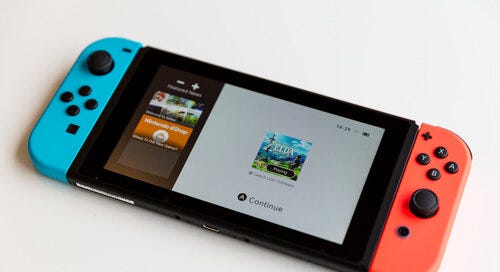THE BIG PICTURE
As a follow up to the lawsuits we previously discussed, Nintendo won both suits against the Switch mod resellers, one via default judgment and the other via consent.
CASES
NINTENDO V. ANXCHIP.COM, ET AL.
Nintendo filed this suit against Doe defendants operating eight websites. The websites sold Switch modification devices that allowed users to play unauthorized copies of games. Because the defendants “deliberately obscure their identities” according to Nintendo, the court granted Nintendo’s motion to serve the defendants via email. None of the defendants appeared or responded, but they did change website URLs and sent emails to customers referencing the lawsuit. Nintendo moved for entry of a default judgment and entry of a permanent injunction, which the court granted on October 6, 2020.
Among other things, the defendants are enjoined from (a) selling the circumvention devices, (b) infringing Nintendo works, (c) transferring the numerous websites they operated to avoid the first two prohibitions. Additionally, the websites were ordered to be transferred to Nintendo and the defendants were ordered to destroy all anti-circumvention devices.
Due to Nintendo’s inability to get the actual owner information, this win would probably mean those sites would shut down while others would pop up using similar means to disguise ownership. There were other developments (see Miscellaneous below) that might mean a different outcome for Nintendo here, but I wouldn’t hold my breath.
NINTENDO V. DILTS AND UBERCHIPS, LLC
Nintendo filed this suit against Dilts, the owner of UberChips, through which he sold the same Switch modification devices. Dilts did answer the complaint, but didn’t put up much of a fight. On September 30, 2020 the parties jointly moved for an entry of a judgment and permanent injunction with Dilts owing $2,000,000 and enjoined from any more of his copyright-infringing activities.
MISCELLANOUS
In a related matter, on October 2, 2020 the Department of Justice announced that 3 members of Team Xecuter (the entity that created and sold the mods) were charged with 11 felony counts ranging from conspiracy to commit money laundering to trafficking in circumvention devices in violation of the DMCA. The U.S. Attorney for the Western District of Washington (Nintendo’s home district) stated:
These defendants lined their pockets by stealing and selling the work of other video-game developers – even going so far as to make customers pay a licensing fee to play stolen games.
We’ll follow these cases as the progress.




